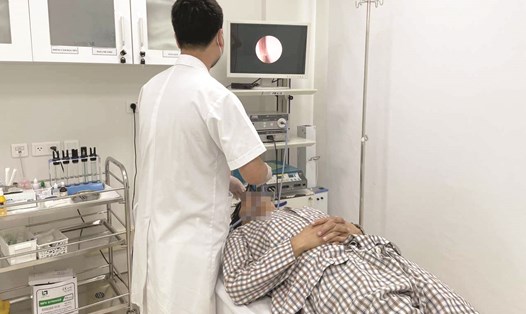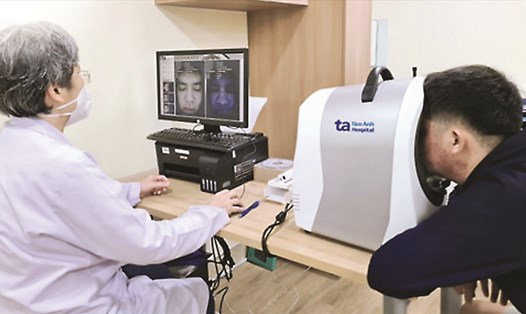The Central Endocrinology Hospital admitted patient N.V.B, male, 53 years old, from Chuong My, Hanoi, in a state of fatigue, high fever, especially severe infected knee ulcers that completely limited the patient's mobility.
The patient was diagnosed with chronic gout and adrenal insufficiency, but did not follow the hospital's prescription and instead used drugs of unknown origin at home.
In the past month, the number of episodes of swelling, heat, redness and pain in the knee joints has increased, making it impossible for the patient to perform basic activities, so his family took him to a medical facility and pharmacy near his home for treatment to inject medicine into both knee joints as well as to incise and drain pus from the wound.
Although the pain initially subsided, it quickly recurred. Both knee joints were swollen, red, hot, and had fluid and pus, causing the patient to have a high fever, fatigue, and increasingly exhausted body, requiring hospitalization at the Central Endocrinology Hospital.
After examination and testing, patient N.V.B was diagnosed by the doctor with infected tophi ulcers of the knee joint, chronic gout, type 2 diabetes and drug-induced adrenal insufficiency.
According to Dr. Nguyen Dang Quan, Deputy Head of the Intensive Care Department, in the case of patient N.V.B, the metabolic disorder was chronic gout due to not having regular check-ups and arbitrarily abusing drugs containing corticosteroids leading to adrenal insufficiency. In addition, the patient's arbitrarily injecting intra-articular punctures and incisions of tophi without ensuring sterility on the basis of poor resistance led to severe knee joint infection, with the risk of having to amputate the joint if not treated promptly.
After being hospitalized and cared for in the Intensive Care Unit, the patient's blood sugar gradually stabilized, the knee infection was controlled, and the patient was able to perform some basic activities. Along with treatment, the patient and his relatives were also advised on nutrition by doctors and nurses, and the patient was educated to understand the reasons for adrenal replacement therapy, not to arbitrarily stop taking the medication, and not to suddenly reduce or stop the dose to avoid falling into a state of acute adrenal insufficiency.
The adrenal gland is an endocrine organ, involved in the energy metabolism of cells in the body. In addition, the hormones of the gland also play an important role in stabilizing blood pressure, maintaining homeostasis and helping the body cope with stress. Adrenal insufficiency is a condition in which the adrenal cortex produces too little cortisol hormone, disrupting the body's metabolic processes, seriously affecting human health.





